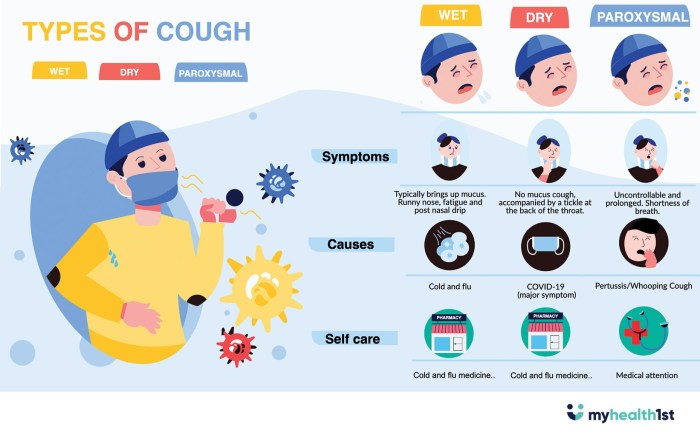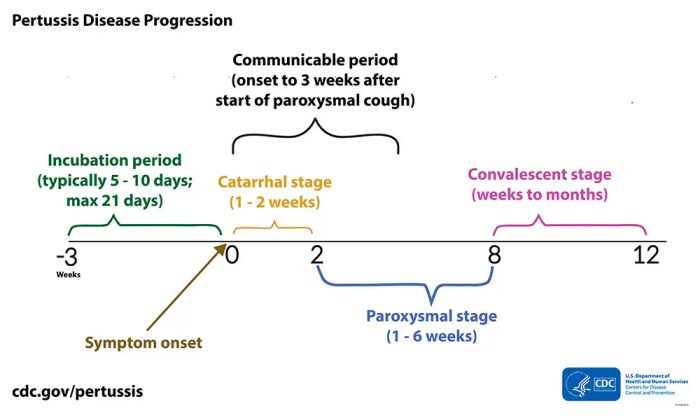A paroxysmal cough is associated with legionnaires disease – A paroxysmal cough is associated with Legionnaires’ disease, a severe form of pneumonia caused by Legionella bacteria. This distinctive cough can provide an early indication of the disease, helping healthcare professionals diagnose and treat it promptly.
Legionnaires’ disease is spread through the inhalation of contaminated water droplets, typically from sources like cooling towers, hot tubs, and showers. The bacteria thrive in warm, stagnant water, and the resulting infection can range from mild to life-threatening.
Paroxysmal Cough and Legionnaires Disease

A paroxysmal cough is a sudden, violent cough that comes in bursts. It can be a sign of Legionnaires disease, a type of pneumonia caused by the bacteria Legionella pneumophila.
Legionnaires Disease: Causes and Symptoms
Legionnaires disease is caused by inhaling aerosolized water droplets that contain the Legionella bacteria. These droplets can be found in cooling towers, hot tubs, and other water systems.
Symptoms of Legionnaires disease include:
- Fever
- Chills
- Muscle aches
- Headache
- Nausea
- Vomiting
- Diarrhea
- Confusion
- Shortness of breath
- Paroxysmal cough
The paroxysmal cough associated with Legionnaires disease is often described as hacking or barking, and it can be very painful.
Risk Factors for Legionnaires Disease
Certain factors can increase the risk of developing Legionnaires disease, including:
- Age (over 50)
- Smoking
- Chronic lung disease
- Weakened immune system
- Exposure to contaminated water sources
Diagnosis and Treatment of Legionnaires Disease, A paroxysmal cough is associated with legionnaires disease
Legionnaires disease is diagnosed based on symptoms and a laboratory test that detects the Legionella bacteria in the urine or respiratory secretions.
Treatment for Legionnaires disease typically involves antibiotics. In severe cases, hospitalization may be necessary.
The paroxysmal cough associated with Legionnaires disease can be a helpful diagnostic clue. If you have a paroxysmal cough, especially if you have other symptoms of Legionnaires disease, it is important to see a doctor right away.
Prevention and Control of Legionnaires Disease
Legionnaires disease can be prevented by taking the following precautions:
- Avoid contact with contaminated water sources.
- Clean and disinfect water systems regularly.
- Use caution when using hot tubs and other water features.
By taking these precautions, you can help reduce your risk of developing Legionnaires disease.
FAQ Compilation: A Paroxysmal Cough Is Associated With Legionnaires Disease
What causes a paroxysmal cough?
A paroxysmal cough is a sudden, violent cough that occurs in bursts, often accompanied by a whooping sound. It can be caused by various conditions, including Legionnaires’ disease, other respiratory infections, and certain medications.
How is Legionnaires’ disease diagnosed?
Legionnaires’ disease is typically diagnosed based on symptoms, chest X-ray findings, and laboratory tests, such as urine antigen tests or culture of respiratory secretions.
What is the treatment for Legionnaires’ disease?
Treatment for Legionnaires’ disease typically involves antibiotics, such as azithromycin or levofloxacin. In severe cases, hospitalization and additional supportive care may be necessary.

